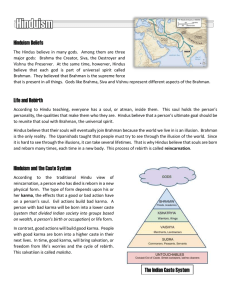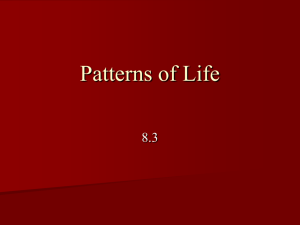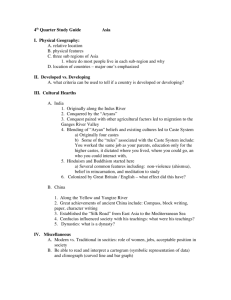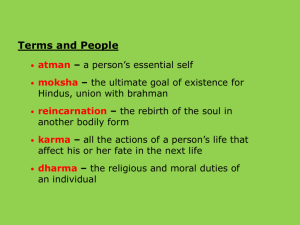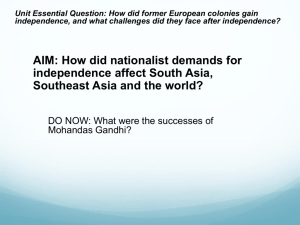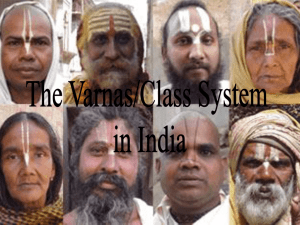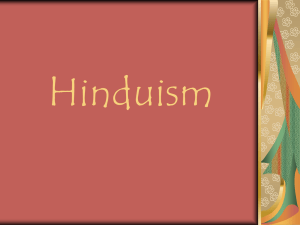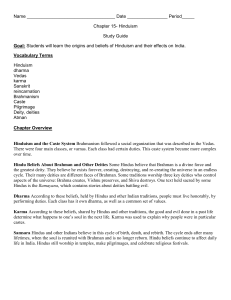The Origins of Hinduism
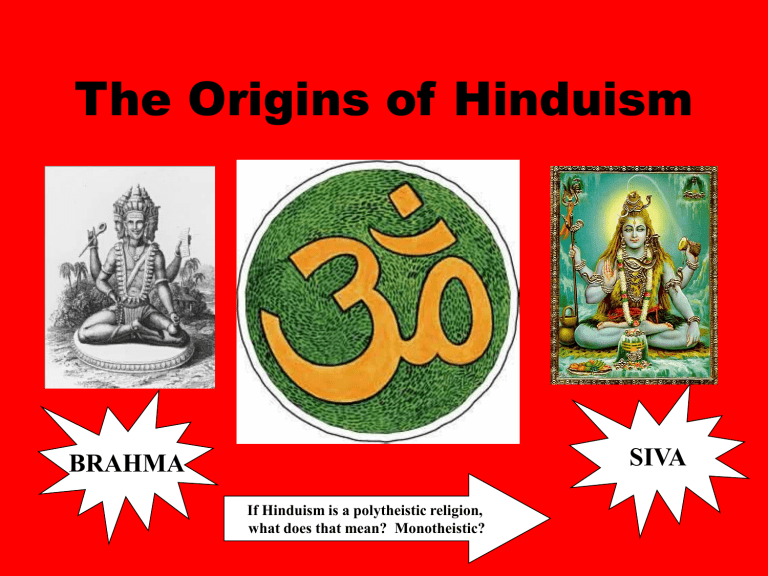
The Origins of Hinduism
BRAHMA
If Hinduism is a polytheistic religion, what does that mean? Monotheistic?
SIVA
Indian Society
Brahmins
Sudras
Kshatriyas
Vaisyas
• According the the Vedas, there were four main divisions, or varnas , in Indian society.
• The varnas were:
* Brahmins (priests, teachers, and scholars)
* Kshatriyas (rulers and warriors)
* Vaisyas (farmers, craftspeople, and traders)
* Sudras (laborers and non-
Aryans)
Why do you think the priests were at the top of society?
What would life be like if our culture adopted a caste system like ancient India’s?
India’s Caste System
• Within the four varnas, there existed many castes , or even smaller groups.
• Since there were so many groups, they needed sutras , or guides, to keep their rules straight.
• Some rules kept people from higher castes from marrying or even talking with those from lower castes.
People who broke the rules would be banned from their castes.
At one time, over 3,000 separate castes existed in India.
Brahma
Vishnu
Hinduism
Siva
• Hindus believe in many gods.
• Three of their main gods include:
*Brahma the Creator
*Siva the Destroyer
*Vishnu the Preserver
• At the same time, however, Hindus believe that each god is part of the universal spirit, Brahman .
Life and Rebirth
Being born and reborn into new bodies is called reincarnation.
• Hindus believe everyone has a soul, or atman , inside them.
• Hindus’ ultimate goal is to unite their atman with
Brahman, the universal spirit.
• It is hard to join Brahman after one life, so Hindus believe their souls are born and reborn many times, each time into new bodies.
Tell your neighbor about reincarnation.
The Concept of Karma
• Karma is the effects that good or bad actions have on a person’s soul.
• Hindus believe that a person with bad karma will be reborn into a lower caste in society.
• They also believe Hindus with good karma will be reborn into a higher caste in society.
• Hindus build good karma by fulfilling the duties required of their caste.
Hindus believe they have a DUTY to accept their place in the caste system. This duty is called their dharma .
INJURE NO
LIFE
Jainism
• An example of another popular religion in
India is Jainism.
• Jains, or people who believe in Jainism, believe in four basic principles.
DO NOT
STEAL
Jains practice nonviolence!
TELL THE
TRUTH
OWN NO
PROPERTY
